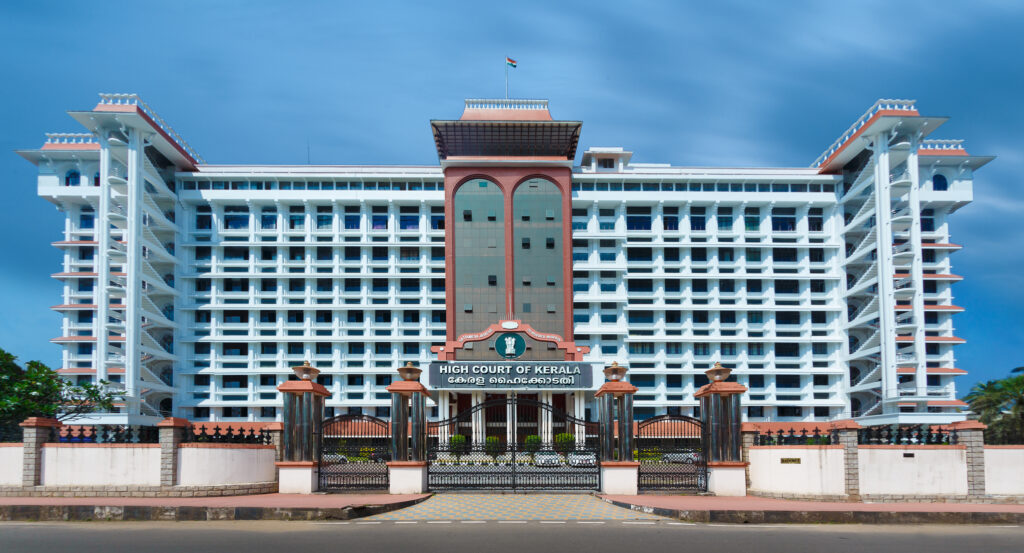The Kerala High Court has established guidelines for the delivery of summons in legal cases involving defendants who reside outside the borders of India.

The Kerala High Court has provided important guidelines for serving Summons in cases where Defendants live outside India. The Court addressed a question that came up due to a conflict between the methods outlined in Order V of the Code of Civil Procedure, 1908 (CPC) and those in the “Convention on The Service Abroad of Judicial and Extra Judicial Documents in Civil or Commercial matters” (the Hague Service Convention). A Full Bench made up of Justice Raja Vijayaraghavan V., Justice C. Jayachandran, and Justice C. Pratheep Kumar stated the following –
- The Hague Service Convention is valid, even though there is no specific law to support it. The way to serve defendants living outside the country should follow what the Convention outlines.
- Sending documents to defendants living abroad by mail, as allowed in Order V, Rule 25, is also acceptable since Article 10 of the Hague Service Convention allows it, as long as the receiving country does not object.
- The statement that summons or notices must be served on people living abroad strictly according to the procedures in the O.Ms, meaning in line with the Hague Service Convention, and that these documents cannot be sent directly to defendants in another country, is not a correct interpretation of the law.
- The Court’s Registry will create and provide suitable guidelines or updated O.Ms based on the law established by the Judgment.
- To help litigants across the country who face difficulties when starting legal actions abroad, it is suggested that the Central Government set up a portal or dashboard to make this process easier.
The Court stated that there should be a way to connect this portal with the Case Management Systems used by the Kerala High Court and other High Courts. This connection will allow all parties involved to track the entire process easily, improving transparency and accountability. Advocate Jacob P Alex served as the Amicus Curiae. Advocate R.S. Kalkura represented the Appellants, while Central Government Counsel N.S. Daya Sindhu Shree Hari and Advocate Abraham George Jacob represented the Respondents.
The main issue before the Court was about the rules for serving summons in cases where Defendants live outside India. Are the terms of an international treaty enforceable because India is a signatory? What happens if these terms conflict with local laws? Should these terms be included in local law using the doctrine of incorporation? These questions needed answers. In the case of Mollykutty v. Nicey Jacob [2019 (3) KHC 118], a Division Bench ruled that summons for a Defendant living in a foreign country that is part of the Hague Service Convention must be served according to that Convention and cannot be sent directly to the Defendant abroad. When the issue of serving summons to a Defendant living overseas came up in the Appeals, another Division Bench questioned the validity of the Mollykutty ruling, suggesting that the existing Code procedures could still be applied without an amendment. Therefore, this Division Bench referred the following questions to a Full Bench –
- Can a summons from an Indian Court for a Defendant living or working in a foreign country be delivered using the methods listed in Rule 25 of Order V of the Code?
- Must every summons from an Indian Court for a Defendant residing or working in a foreign country be sent via the Ministry of Law and Justice?
The Chief Justice referred the case to the Full Bench of the Court. The High Court noted that the method of serving documents by post, as stated in Order V, Rule 25, is not completely ruled out by the Hague Service Convention. Article 10 of the convention allows for service through postal channels. Therefore, even if we agree that the convention is valid without specific legislation, we can still serve defendants abroad using postal methods as allowed by the convention itself. The Court also mentioned that there is no system in place to guarantee service of summons as described in Order V, Rule 25, whether by post or email.
The Court highlighted that whether the summons or notice was actually or deemed served to the Defendant is very important. This ensures the Defendant is properly informed and has a chance to defend against the action taken against him. Therefore, every Court should make sure that when serving a Defendant abroad by mail or email, as stated in Order V, Rule 25, the summons or notice is delivered. If it is not, the Court cannot continue with the case. The Court stated that there is no issue with attempting to serve the summons to a Defendant abroad using the methods in Order V, Rule 25. If the Defendant responds to the court after such service, it is considered complete. If the Court receives confirmation of service, which depends on the postal system in the destination country, it can still proceed. However, if neither of these situations occurs in a reasonable time, the parties must revert to the methods outlined in the Hague Service Convention. The High Court provided guidance based on this reference.
Cause Title: Charuvilla Philippose Sundaran Pillai & Anr. v. P.N. Sivadasan & Ors. (Neutral Citation: 2024:KER:84933)









